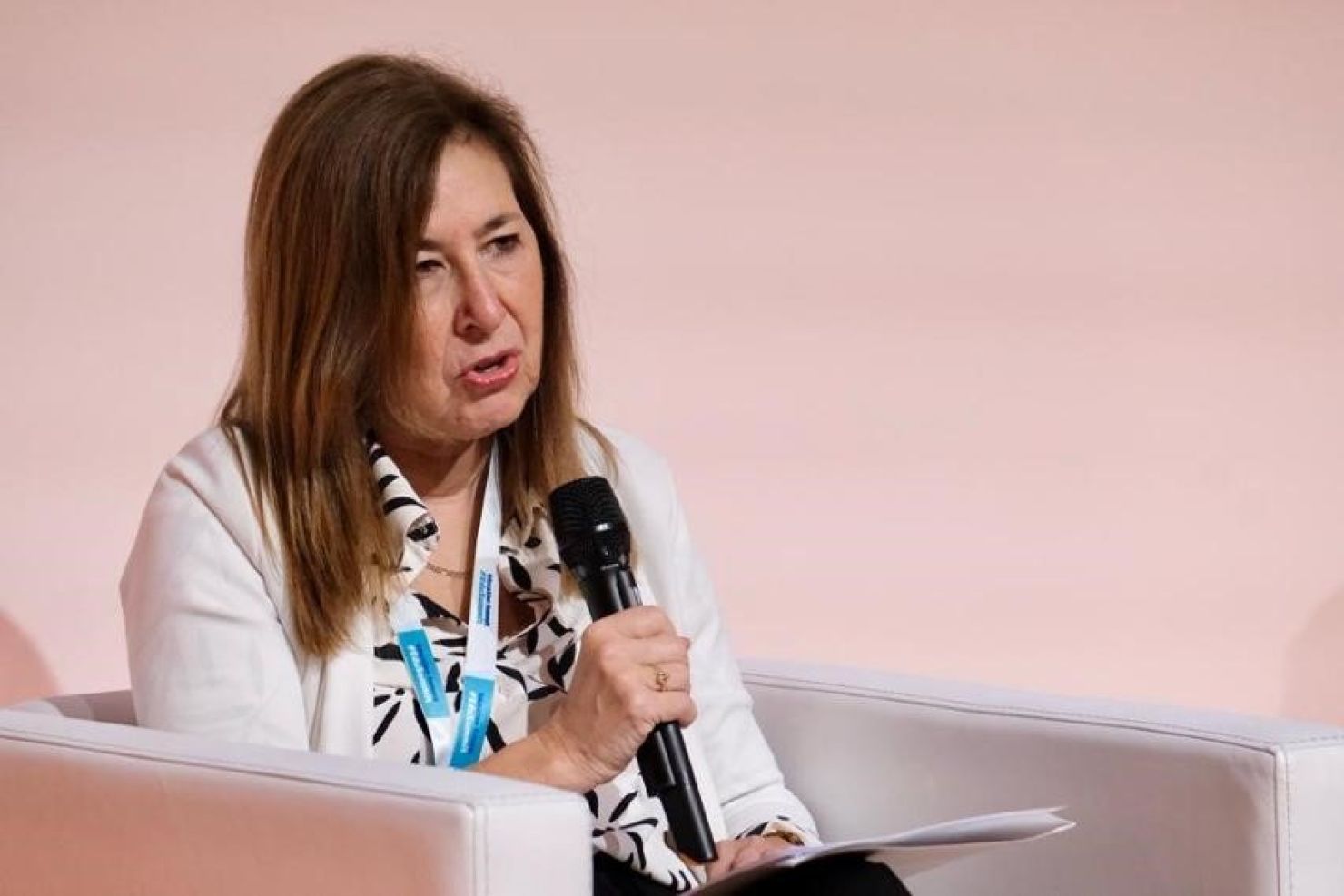Rector Amaya Mendikoetxea presented the results of the SMARTT Project at the Sixth European Education Summit

Rector Amaya Mendikoetxea took part in the high-level panel “Higher Education –Towards a joint European degree” at the Sixth European Education Summit, the annual flagship event of the European Education Area (EES). In this session, she took stock of the SMARTT project, coordinated by the Universidad Autónoma de Madrid, to improve the quality and increase the transferability of European degree award criteria.
“If policies are put in place to facilitate the process, the future is promising and will provide a raison d’être for all the work done in the European Alliances”, said Rector Mendikoetxea .
Lessons from SMARTT
The Sixth European Education Summit held in Brussels (November 30th at the Square Brussels Convention Center in Belgium) hosted the presentation of the results of the SMARTT Project by Dr. Amaya Mendikoetxea, Rector of the Universidad Autónoma de Madrid, who participated in the high-level panel Higher Education –Towards a joint European degree. The SMARTT project, led by the Universidad Autónoma de Madrid (UAM) with the collaboration of the CIVIS Alliance and other European universities (Eutopia, Unita and NeurotechEU), is a major tool towards the development of a joint European degree label, one of the strategic priorities of CIVIS.
SMARTT (Screening, Mapping, Analyzing, Recommending, Transferring, and Transforming) aims to examine, test, and make recommendations to improve the quality and increase the transferability of European degree award criteria. One of the key issues to be discussed at the summit.
“Several key lessons have been learned during the development of SMARTT”, said the UAM President. “Firstly, the process of establishing a joint program takes time and involves scarce human resources; therefore, clear, and simple procedures leading to the European Degree Label (EDL) are recommended. Secondly, for institutions to participate, additional value must be provided".
Thirdly, to foster stronger cooperation between institutions, obstacles at national and regional level that hinder joint programs must be addressed, balancing harmonization at European level and flexibility at national level. Fourthly, “quality assurance is crucial and must be aligned with EAQA guidelines”, she said. "Internally, institutions must foster a culture of internationalization in degree accreditation. In addition, funding, like the Erasmus Mundus programs, is vital for the success and sustainability of EDL programs”, she said. “Finally, employability and inclusivity should be promoted by reaching out to a larger number of students through blended or virtual mobility, offering flexible routes to suit diverse profiles and needs”, she concluded.
Next steps for joint European degrees
Regarding the future of a joint European degree, Rector Amaya Mendikotexea was optimistic. “The Erasmus Mundus Joint master’s degree (EMJMD) has shown how attractive these programs are. We are now ready to take further steps and use the label to encourage this kind of collaboration at all stages of higher education, promoting the internationalization and employability of our students”, she says. “If policies are put in place to facilitate the process, the future is promising and will provide a raison d'être for all the work done in the European Partnerships”, she predicted.
The creation of the EDL shows, according to the results obtained from the SMARTT project and presented at the summit, the need to clarify criteria, establish a methodological framework and provide comprehensive recommendations covering curriculum alignment, quality assurance, recognition, governance, resource allocation, cultural sensitivity and change management. The participation of the Rector in this panel has been crucial as she has deepened the lessons learned and agreed on a set of recommendations for future policy developments.
